AVCJ Private Equity & Venture Forum Australia & New Zealand 2023
The premier private equity & venture forum in Australia & New Zealand
Four Seasons Hotel, Sydney and Online
Agenda
20th Anniversary Cocktail Reception
The Mint (10 Macquarie Street, Sydney). RSVP is required.
VIP GP-LP Dinner (invitation only)
Limited partners’ session (invitation only.)
A behind-closed-doors session in which LPs can share their experiences of private markets investment – across multiple geographies, using third-party managers or going direct, and leveraging advisory relationships. Attendance is limited to investors with active alternatives programs as well as to those currently not allocating but who wish to find out more about the industry. Featuring presentations, an interactive panel, and a practical group discussion, the session will cover topics including:
- What investment committees are asking that they weren’t a year ago
- Best practices in terms of preparing portfolios for a downturn
- The implications of a slowdown in exits and distributions
- How appetite for certain markets or strategies varies based on the cycle
- Addressing ESG, impact, and decarbonisation priorities
- Risk and regulation in the context of private markets valuations
- Superannuation consolidation vs minimum cheque size constraints
- Accessing co-investment and being a value-added partner
Registration
Global outlook: Rewriting the playbook
Private equity faces significant headwinds globally. Geopolitical unrest, inflationary pressure, and rising interest rates have contributed to a highly uncertain investment environment. Even where there is conviction around an opportunity, financing it can be a challenge. At the same time, GPs continue to position themselves for long-term strategic growth, identifying new products and innovations and tapping new streams of capital. Our panel of industry experts discuss how they are approaching investments, from underwriting to exit.
- What makes this cycle different from the last?
- Portfolio management – storm-proofing or futureproofing?
- How are GPs evolving to remain globally competitive?
- What products and strategies are attracting most LP interest?
Private markets in Australia: Tackling uncertainty
Supply chain issues, labour shortages, an M&A slowdown, a softening in consumer demand. This amounts to a snapshot of the local issues – some intertwined with global challenges, some not – confronting investors in Australia. With valuations yet to reset it is not an environment conducive to aggressive deployment. However, the best-performing vintages often coincide with the most challenging conditions. Our panellists offer insights into how they find value through targeting defensive sectors and leveraging domain expertise.
- What are the main drivers of deal flow in Australia?
- In which areas are GPs developing in-house operational resources?
- What are the implications of intermingling PE and infrastructure?
- How are GPs thinking more broadly about liquidity generation?

Lunch
Lessons learnt: 20 years of PE and VC in Australasia
The AVCJ Australia & New Zealand Forum has tracked and reflected the evolution of the industry over the past two decades. History is often episodic: the trials and triumphs of buyout pioneers, the arrival of global GPs, dotcom boom and bust, the global financial crisis, a record-breaking streak of economic growth, the rise technology-enabled business models, and a global pandemic. But the overriding story is one of an asset class that has become a cornerstone of the economy – and generated attractive returns for LPs along the way. A panel of industry veterans revisits the past and looks to the future.
Networking break
Venture capital: Time to show conviction
Venture capitalists have enjoyed a relatively long run of valuation upticks, a scattering of liquidity events, and latterly, increased support from local institutional investors. Now, though, the industry is facing a reality check. Challenging economic conditions have prompted questions about business model stability and the viability of valuations, and capital is harder to source. Assertions that the VC ecosystem has the maturity to thrive in the face of adversity will be put to the test.
- What is the outlook for early and growth-stage investment?
- Are regulators justified in questioning valuation methodologies?
- When is Australia likely to start seeing down rounds?
- What can VC investors do to build resilience into their portfolios?


Fundraising 2.0: Of private wealth and family offices
Private wealth platforms and family offices represent a fast-growing and increasingly popular capital source for alternative investment managers. For private equity firms, advisors, and intermediaries, marketing is educational as well as product driven. Working with high-net-worth investors also requires refined approaches in areas like reporting, fees, financial modelling, and co-investment. Our panel of wealth managers and family offices explores how these efforts are paying off and considers the long-term implications of democratising access to alternatives.
- Which sectors and strategies get the most traction with these investors?
- Are semi-liquid products the best way to reach the mass affluent?
- Have structural questions around capital calls and reporting been addressed?
- How should GPs go about engaging family offices on opportunities?
Close of conference Day 1
AVCJ Gala Dinner – in partnership with Australian Investment Council (SOLD OUT)
Bringing together industry leaders and business stakeholders, in partnership with Australian Investment Council will see more than 400 people take part in this major private capital industry gathering.
Pacific Equity Partners (PEP)
http://www.pep.com.auPEP is Australasia’s oldest and largest private equity firm, with A$12 billion AUM across various investment strategies. Since its founding in 1998, PEP has made more than 200 investments including bolt-ons, has engaged in close to A$50 billion of transactions, including both acquisitions and exits, and has delivered a 28% average Net IRR p.a. across the closed end funds. These results are built on a team-based approach of apprenticeship, long term experience, aligned incentives – and a disciplined investment focus, that has delivered ‘best in class’, consistent results for our investors and partners over the last 26 years. Our long-term investors include the world’s largest and most experienced investment institutions and sovereign wealth funds, as well as private wealth investors. PEP has been the recipient of various industry awards over the past 26 years, including most recently the 2024 Firm of the Year Award from the Australian Investment Council (AIC).
Climate change and decarbonisation: Seizing the opportunity
Energy transition is a hot-button topic among all stakeholders – individuals, government, corporates, and investors. Meanwhile, the scale of spending required to realise net-zero emissions goals has been compared to creating the top 10 companies in the world every year. For GPs, energy and climate represent a huge investment opportunity as well as an equally large operational and compliance burden. Those able to generate a positive environmental impact and financial returns stand to benefit when fundraising.
- Which sectors are most conducive to the pursuit of net-zero strategies?
- What progress are GPs making in driving change in portfolio companies?
- Are stakeholders mindful enough of disclosure and greenwashing?
- How can private equity firms access sustainability-linked financing?
Hard talk: How to ride out a downturn
Many private equity investors active in the Australasian market have never experienced a pronounced or protracted downturn. Their careers to date have been characterised by low interest rates, sustained economic growth, a business-friendly investment environment, and strong support from LPs. However, this cosy status quo has been rocked by COVID-19, macroeconomic challenges, and geopolitical unrest. Valuations have become unstable and liquidity events are difficult to realise. Our panel of seasoned investors discusses lessons learned in previous cycles and how GPs can find opportunities amid crises.
Private debt: Working the room for opportunities
The private debt proposition has always been predicated on filling the gap created by banks withdrawing from traditional lending. This may become even more pertinent in a challenging economic environment, but credit investors are also increasingly selective and mindful of downside protection and jurisdictional risk. An influx of sub-strategies – offered by specialists and multi-asset managers – means LPs have more access points than ever before. Our panellists share their views on how to navigate the market.
- Which strategies are best placed to take advantage of current conditions?
- What impact does a downturn have on structuring downside protection?
- Are special situations and distress opportunities emerging in greater number?
- What are the pros and cons of Australasia as an investment destination?
Networking break
Asia outlook: Opportunities amid uncertainty
Fundraising by Asia-based private equity managers in on course for its weakest year in nearly a decade. The pace of investment has slowed, IPOs are scarce, and M&A appetite among strategic investors is weak. The region’s role as a global growth engine – and the fundamentals underpinning this – are unchanged, but many LPs are re-evaluating their exposure and how they want to access the market. Our GPs from around Asia explain how they are staying relevant.
- Where are the region’s economic bright spots?
- Does an Asia portfolio without China make sense?
- How are GPs differentiating themselves from peers?
- What steps can be taken to improve exits and liquidity?
LP perspectives: Remaining active for the right reasons
The way institutional investors approach the current investment environment is dictated to a large extent by portfolio maturity, strategic objectives, and risk appetite. Following two years dominated by re-ups and budgetary constraints as GPs returned to market at ever shorter intervals, now overallocation and macroeconomic pressure are primary concerns. There is a need to be defensive yet opportunistic, diversified yet aware of specific pockets of opportunity. Our panellists explain how they find the right balance.
- What is the biggest issue impacting allocation decisions?
- How is the LP-GP power dynamic evolving?
- Under what circumstances would LPs back a first-time fund?
- How are LPs responding to questions on ESG and portfolio valuations?
Networking lunch and close of conference
An error occurred trying to play the stream. Please reload the page and try again.
CloseSign-up to join the ION Analytics Community to:
- Register for events
- Access market insights
- Download reports

Tim Burroughs is managing editor of Asian Venture Capital Journal, having joined the publication in May 2011. He is responsible for all editorial content put out under the AVCJ brand, including Asian Venture Capital Journal, AVCJtv, AVCJ Awards and AVCJ.com. Tim previously spent five years at China Economic Review, serving as editor-in-chief and then editorial director. Located in Greater China since 2003, during which time he has lived in Beijing, Qingdao and Hong Kong, Tim has been a China-based contributor for publications including The Sunday Times, Sunday Telegraph, BBC and China Daily. Prior to moving to China, he trained and worked as a journalist in the UK. He was honored at the Society of Publishers in Asia awards in 2007, 2008 and 2010, and at the State Street Institutional Press Awards - Asia in 2012.

Rune Munk is a Partner responsible for origination and execution and is based in the firm’s London office.
Prior to joining Coller Capital in 2007, Rune was a Senior Management Consultant with the Corporate Strategy team at Deloitte.
Rune has a BA (Hons) in Economics and Japanese from SOAS in London and an MSc in Economics and Technological Innovation from the London School of Economics and Political Science. He is a Chartered Management Accountant.

Gillian joined JBWere in May 2019 and is Head of Alternative Investments and Responsible Investing (RI), in addition to being an Executive Director of the firm. As Head of Alternatives, Gillian leads the Alternatives strategy, investing selection and execution across Private Equity, Private Debt, Real Assets including Infrastructure and Property and Uncorrelated Assets. Gillian also leads the further expansion of JBWere’s approach to Responsible Investing spanning ESG, ethical/impact investing, and stewardship of capital. Prior to joining JBWere, Gillian held senior multi-asset global investment and structuring roles on trading floors, working across Europe, North America, Asia, Africa and the Middle East, within Standard Chartered Bank (SCB) and Bank of Montreal (BMO) Capital Markets. Gillian was also the global structuring sustainability lead for capital markets in both SCB and BMO. Gillian’s roles have included leading sales and structuring for SCB’s Alternative Asset Group (AUM +USD 2bio) in London, in addition to leading and designing multi-asset investment solutions across Fixed Income, Equities, FX, Alternatives, Credit, Commodities and Responsible Investments (RI) for Institutional, Private Bank and High Net Worth clients.
INSEAD Executive Education (TGM, 2022)
Bachelor of Commerce, University of Queensland
Bachelor of Business (Management), University of Queensland
Certified Practicing Accountant (CPA) Australia
Capital Markets Programme, Chartered Institute of Securities and Investments (CISI)
UK Diploma of Investment Advice (Qualified UK Financial Adviser), Chartered Institute of Securities and Investments (CISI)

Serge has been leading the Private Equity program at Cbus for the past couple of years. He previously spent nine years as portfolio manager at MLC Private Equity, and prior to that was a founding member of National Australia Bank’s global fund management arm nabInvest. He has also worked at management consulting outfit McKinsey and Company, and before that led a research team at Alcatel-Lucent.

Doug Coulter joined LGT Capital Partners in 2007 to lead its Asian private equity investment activities. Prior to LGT, Doug was a Senior Investment Officer at the IFC, responsible for direct investments in the TMT, retail & consumer and healthcare sectors. He previously worked at Nomura Securities in Hong Kong and as a lawyer at Fasken in Toronto. He holds an MBA from INSEAD, a M.Sc. from the LSE, a law degree from the University of Western Ontario and a B.A. from Queen’s University in Canada.
LGT Capital Partners is a leading alternative investment specialist with over USD 80 billion in assets under management and over 230 private equity professionals worldwide. Headquartered in Pfaeffikon, Switzerland, the firm has offices in New York, Dublin, London, Paris, Frankurt, Vaduz, Dubai, Beijing, Hong Kong, Tokyo and Sydney. LGT Capital Partners was selected as Alternatives Manager of the Year in Asia in 2016 and 2017 and Alternatives Fund House of the Year in 2018 by AsianInvestor, was named Alternatives House of the Year in 2020 and 2021 by Asia Asset Management and was named Fund of funds of the year in Asia in 2018 and 2019 by Private Equity International.

Tom is a Portfolio Manager in Aware’s Private Equity team covering private equity / buyout primary fund and co-investment activity. Tom joined Aware in 2021 having previously worked at AGL Energy where he focused on renewable energy investing, and at Macquarie Group in New York where he invested in infrastructure.

Damien Webb joined Aware Super in January 2014 and is now the Deputy Chief Investment Officer and Head of International. He has over 25 years’ experience in funds management having previously worked at Perpetual Investments and ING Investment Management. As Head of the Real Assets team at Aware Super, which manages A$150 billion on behalf of its 1.1 million members, Damien leads the team’s investment activities across the strategies of infrastructure, agriculture and property. The team has made investments in Vocus, NSW and Victorian Land Registries, Bankstown and Camden Airports, Renewable Energy, Almond Farms, New Bendigo Hospital, Sunshine Coast University Hospital, International Convention Centre Sydney, the Barangaroo precinct, Retirement Villages and the NSW Fire & Rescue Academy. Damien is also a director of several these assets. Damien received a Bachelor of Economics degree from Sydney University and is an Associate of the Securities Institute of Australia having completed his Graduate Diploma in Applied Finance and Investment. In 2006, Damien completed his Masters in Applied Finance with Macquarie University.

Rune Munk is a Partner responsible for origination and execution and is based in the firm’s London office.
Prior to joining Coller Capital in 2007, Rune was a Senior Management Consultant with the Corporate Strategy team at Deloitte.
Rune has a BA (Hons) in Economics and Japanese from SOAS in London and an MSc in Economics and Technological Innovation from the London School of Economics and Political Science. He is a Chartered Management Accountant.

Alicia joined the Future Fund in 2019 as the Head of Private Equity. She was appointed Deputy Chief Investment Officer, Private Markets in June 2022 where she held responsibility for managing the strategy for the Private Markets portfolio including Private Equity, Property, Credit, and Infrastructure and Timberland. In October 2023 Alicia’s role expanded to oversee all physical asset classes.
She has over 23 years' experience in the financial services sector including 17 years at MLC. She is also Chair of the Australian Investment Council Board and a Non-Executive Director on the Tilt Group Board.
Alicia holds a Bachelor of Business from the University of Technology Sydney, is a CFA charter holder, and has completed the General Management Programme at INSEAD.

Simon is head of sales at Permira and has primary responsibility for Australasian and Middle East investor coverage across the private equity and private credit businesses.
Prior to joining Permira, Simon worked for Campbell Lutyens as an LP relationship manager focused on Australasia and the Middle East for three years. Before that, he spent time with Babcock & Brown and Macquarie in the Middle East, and with the private equity team at ANZ based in New Zealand.

Nick Sammut leads investing activities, including sourcing, executing and managing investments for Brookfield’s Growth team, part of Brookfield’s $121B private equity platform.
Mr. Sammut joined Brookfield from Generate Capital, where he sourced, structured, underwrote and closed principal investments in the energy infrastructure, waste, water and renewables sectors. Previously, he was a private equity investor at Fortress Investment Group and was in equity research at Goldman Sachs.
Mr. Sammut holds a Bachelor of Science degree from Northeastern University.

Nicholas Macksey is a Partner in the EQT Private Capital Asia team. Nicholas worked for BPEA from 2006 until 2022, when the company joined forces with EQT and was renamed BPEA EQT.
Nicholas leads the Mid-Market Growth fund across Asia-Pacific and is a member of the EQT Private Capital Asia investment committee and exit and liquidity committee.
Prior to joining BPEA, Nicholas was a Senior Associate at Westpac Institutional Bank and also worked as a Senior Associate at Deloitte.
Nicholas holds a Bachelor of Commerce and a Bachelor of Economics from the University of Queensland and is also a CFA charterholder.

Nick Combes is a Mergers & Acquisitions Partner and leads the coverage of Financial Sponsors nationally.
Mr Combes joined KPMG as a graduate in 2004 and has spent the last 17 years in the M&A team, acting as lead-advisor on mid-market transactions globally, with a particular focus and passion for Industrial Markets and Private Equity.

RobKoczkar is a Managing Director of Adamantem Capital. His experience spansprivate equity investing, public company governance, strategy consulting, philanthropyand social impact investing. Prior to establishing Adamantem Capital he wasChief Executive Officer of Social Ventures Australia, a Managing Director ofPacific Equity Partners and a Principal with Texas Pacific Group. Rob startedhis career with Bain & Company. Rob received a BEng (Hons.) in Mechanicaland Manufacturing Engineering from the University of Melbourne. He currentlyserves on the boards of Hygain, Servian, Zenitas, Legend and is Chair of SocialVentures Australia.

Adrian Kerley an Executive Director in the Private Equity team at IFM Investors, responsible for sourcing, structuring and negotiating new investments, managing existing investments as well as Private Equity fundraising. Mr. Kerley has extensive finance and private equity experience, joining IFM Investors from Commonwealth Superannuation Corporation, the pension fund for Australian government employees and members of the Australian Defence Force, where he was Head of Private Capital. In this role, Mr. Kerley was responsible for CSC’s Global Private Equity program, including developing and implementing investment strategies, portfolio planning and execution, relationship management, and operational enhancements. Mr. Kerley also previously worked in the investment team at CHAMP Ventures and for Woolworths in various operational and strategic roles.

Jeremy Samuel is the founder and Managing Director of Anacacia Capital.
Anacacia manages >$800million investing into leading small-medium enterprises. It is currently raising Anacacia Private Equity IV, focused on Australasian lower mid-market growth buyouts. Anacacia has won numerous awards including the Australian Investment Council Firm of the Year.
Jeremy is a non-executive chair of Anacacia portfolio company Sureway. He was the former lead director for Anacacia's successful investments including: Appen, Big River, Home Appliances, Lomb Scientific, Rafferty's Garden and Yumi's Quality Foods.
Jeremy holds an MBA from Yale University School of Management and Arts/Law degrees from the University of NSW.

Marcus advises super funds, private equity managers, and industry consultants. He originates and works on individual private equity transactions. He teaches for the Australian Investment Council, mentors future industry leaders, and runs presentation training and peak performance workshops.
From 2005-2020 he founded, built, and managed QIC’s Global Private Capital business of A$7.0 billion invested in directs, co-investments, and primary and secondary fund interests.
He’s at the forefront of new private equity models as reflected in a paper co-authored with Josh Lerner of Harvard and Hugh MacArthur of Bain & Co, and his past Chairing of the Institutional Investors Roundtable, an international community of large, long-term institutional investors seeking to collaborate on private market investments.
Mr. Simpson holds a MBA from the Wharton School of the University of Virginia and a BSc (Architecture) from the University of Virginia.

Peter Wiggs founded Archer Capital in 1997 and led the firm until 2018. For 21 years he oversaw the investment program, fundraising and LP relationships.
Prior to Archer Capital Peter was a director of Rothschild and Co and before that a management consultant at Booz Allen Hamilton.
Peter is currently a director of Autopact Group, Aspire2 and Odyssey House. He also owns and operates the boutique wine company Eden Road Wines.
Mr. Wiggs has a Master of Business Administration from Harvard Business School and a Bachelor of Economics (Hons) from the University of Sydney.

Simon is a founder of Pacific Equity Partners and chairs the firm's Operating Committee. Prior to founding PEP, Simon was a Partner with Bain & Company and worked as a strategy consultant in the US, Singapore and Sydney. He started his working life as an engineer with The Royal Dutch/Shell Group in The Netherlands. Simon received a first class degree (BSc (Eng) in Civil Engineering) from the University of Bristol where he received the Institution of Civil Engineers Award, and an MBA from the Wharton School where he was a Thouron Scholar.

Mike is the Group Managing Partner of Roc Partners where he is responsible for leading client relationships and investment activities in several markets. Mike was one of the founding partners of Roc Partners following the management buy-out of Macquarie Group’s private markets business unit (“MIMPM”) by its senior executives in June 2014. He currently serves a director of Roc Partners investee companies StoneAxe, Australia’s Oyster Coast, Hirepool, National Dental Care, Infrastructure Advisory Group and Pacific Metals Group.
Mike holds a Bachelor of Science Honours, Applied Mathematics, is a Chartered Financial Analyst (CFA) and Associate of the Institute of Actuaries of Australia.

Steve is a Founding Partner of Potentum Partners. Formed in 2019 by senior members of Future Fund’s private equity team, Potentum Partners offers a new way for institutional investors to access and build world-class private equity programs.
Prior to Potentum Partners, Steve spent 11 years as Head of Private Equity and Investment Committee member at Future Fund, Australia’s sovereign wealth fund. He led the team that created Future Fund’s private equity strategy, building a A$27.5bn investment program that returned over 17% p.a. (hedged, in Australian Dollars) over 10 years. As an Investment Committee member, he was involved in the whole of portfolio strategic and tactical decision making.
Steve has over 30 years of private equity and corporate finance experience across Europe, Australia and New Zealand. His previous experience includes establishing a private equity program at the New Zealand Superannuation Fund, Co-Head of ANZ Private Equity, financial sponsors with SG Hambros in London and corporate finance at Ernst & Young in London and Auckland.
Steve is a graduate of the University of Auckland and holds a Masters of Commerce in Finance.

James Viles is a partner in Bain & Company's Sydney office, where he leads Bain’s Sydney PE advisory practice and specializes in Healthcare. He has 17 years of consulting experience across Australia, London and Africa mostly focused on working with PE sponsors.
James has deep experience in advising local and global private equity companies across the ownership life cycle, with a particular focus on diligence (>100 diligences completed and counting) and PE portfolio company value creation.
James has deep experience across all major healthcare provider segments, from allied health to hospitals, with a particular focus on rapid performance improvement / transformation.
Outside of Bain James is on the Board of Life Circle, a charity that assists corporate decision makers and carers avoid regrettable deaths for those in their care, and Thud, a direct to consumer sports nutrition company.
He holds an MBA with distinction from INSEAD France / Singapore and an MA (Oxon) from Oxford University.

Xiaying Zhang is Wellington Management’s Director of Private Investments, based in Singapore. Prior to joining Wellington, Xiaying was Head of Singapore at Hamilton Lane. Xiaying has a Masters’ and Bachelors’ degree in Finance from San Diego State University and is a member of CAIA.

Alister is the founder and Managing Partner of Folklore Ventures, an Australian venture capital firm with three top-decile funds under management that invests in ANZ founders building global technology companies. Alister has over 20 years of experience as an investor, advisor and founder of technology companies, with software at their core.

James is a Partner at Airtree, a leading venture capital firm backing Aussie and Kiwi founders building the iconic technology companies of tomorrow. James has a particular interest in software, infrastructure and fintech and led Airtree's investments in A Cloud Guru, Constantinople, DroneDeploy, Zepto, Buildkite and Secure Code Warrior. Prior to joining Airtree, James spent 15 years working overseas. He was Vice President at Accel Partners, the VC fund behind Slack, Dropbox, Facebook and Spotify.

Edwin Chan joined iCapital in 2021 as Head of Asia and Head of Client Solutions APAC. He has more than 25 years of experience in the financial services industry, including a strong track record in private markets in the Asia Pacific region.
Before joining iCapital, Edwin successfully founded and spent a decade building the Probitas Partners business in Asia. He has worked with many private market firms across different alternative investment strategies as well as with institutional and family office investors in the Asia Pacific region. Previously, Edwin worked with AIG Global Investments, Citi, and HSBC based out of Hong Kong in various regional roles covering clients across the broad Asian geography.
He holds a MBA and a BA from the University of South Australia and is a Certified Practicing Accountant of CPA Australia.

Kathryn Young is Head of Investments for Cambooya Pty Ltd, which is one of Australia’s longest-running family offices. In that role she guides investment selection and portfolio construction across a wide range of assets, both listed and unlisted. She has more than 15 years of investment experience in Australia and the United States. She spent much of that time in manager research for Morningstar, ending her tenure there as Director of Manager Research Ratings, Aus/NZ. She completed her MBA at the University of Chicago Booth School of Business and is a CFA Charterholder.

Martin Randall is responsible for delivering and maintaining LGT Crestone’s investment offering across hedge funds, private equity and real assets. Engaging with local and global alternative asset firms, Martin’s focus is to source, perform due diligence and structure alternative investment solutions for Crestone’s client base. He is also a member of the LGT Crestone Investment Committee and further supports LGT Crestone’s investment offering across separately managed accounts, impact investments and structured products.
Martin joined UBS Wealth Management Australia Ltd in 2014 and transitioned to LGT Crestone at launch in 2016. Prior to that, Martin worked in the UK for EFG Private Bank as Head of Structured Products, having started his career at Kleinwort Benson Private Bank (now Kleinwort Hambros), developing derivative and tax-based structured products for high-net-worth investors. Martin holds a BSc in Computer Science from the University of London.

Paul Heath is a Founding Partner and Chief Executive Officer at Koda Capital.
Prior to co-founding Koda, Paul was CEO of JBWere, one of Australia’s longest established private wealth management companies. During his two and a half decades in the finance industry Paul has also been an investment adviser and an equities derivatives trader.
In addition to his role at Koda, Paul is a Director (and former Chairman) of Juvenile Diabetes Research Foundation Australia and a Director of Juvenile Diabetes Research Foundation International, as well as a member of the Benevolent Society Endowment Investment Advisory Committee.

Square Peg is a Venture Capital and listed tech equities fund manager. Leila is responsible for building relationships with investors, raising Square Peg’s funds and investor relations. Leila has considerable experience in working with institutional investors, family offices and financial advisors, as well as raising funds across multiple asset classes and strategies.
Previously, she was an Executive Director in the Institutional Sales team at Goldman Sachs Asset Management (GSAM) (’09-’17). Prior to that, she managed relationships across asset consultants and research houses for GSAM.
Leila is currently a member of Trinity College (a college of The University of Melbourne) Investment Committee, the St Catherine’s School Finance Committee and was previously Chair of Member Education for the CFA Melbourne Society.

As KPMG Australia’s Head of ESG Due Diligence practice, Julie provides her clients with critical insights on Environmental, Social and Governance (ESG) risks and value creation opportunities which can seal or break a deal. The way a target company handles ESG issues can affect long-term performance and valuation and the monetary value of identifying risks and upsides related to ESG at the pre-signing stage makes ESG due diligence critical.
She has been advising publicly listed and large private clients across all sectors on ESG strategy, reporting and assurance, in Australia and internationally, for over 15 years and has worked across all parts of the investment lifecycle.
She understands how the effective management of environmental and social issues such as GHG emissions, climate risk, modern slavery and circularity, combined with transparent reporting will play an increasing role in helping companies succeed.
Julie believes the quality of ESG data and information should be investment-grade and akin to financial information to enable investors to make critical investment decisions. Focus on financial analysis alone represents a shrinking percentage of the information that the market considers important and over the past decade, there has been a significant shift towards non-financial analysis being used to uncover risks and opportunities.
Julie was the co-author of KPMG Australia’s Impact Plan and KPMG’s bi-annual thought leadership publication Sustainability Reporting Survey that explores global and Australian trends in sustainability reporting.

Ms. Tavill is the global head of responsible investment, leading all ESG and impact initiatives across all businesses and investment strategies at StepStone Group, a global private markets investment firm focused on providing customized investment solutions and advisory and data services to some of the most sophisticated investors in the world. With more than US$548 billion of private markets allocations, including over US$127 billion of assets under management as of December 31, 2021, StepStone covers the spectrum of opportunities in private markets across the globe. Ms. Tavill is also a member of the private equity team.
Prior to StepStone, Ms. Tavill was responsible for AMP Capital’s global alternative investment platform that included private equity, infrastructure and real assets. Before that she spent five years at Van Eyk Research in Sydney, the last four as head of research. Before moving to Australia, she was an executive director at Goldman Sachs Investment Management, responsible for their UK small-and mid-cap portfolios.
Ms. Tavill received a MSc in finance and economics from the London School of Economics, in addition to a BBS with honors in economics and honors in finance from the University of Cape Town, South Africa.

Edwina leads Wellington Management’s sustainability efforts in APAC. In this role, she works closely with local investors across all asset classes to help them incorporate ESG considerations into investment processes, leverage Wellington’s extensive sustainability resources, and interpret regulatory requirements and implications on investment processes. She also partners with APAC-based ESG analysts to understand regional issues and demands. Before joining Wellington Management in 2022, Edwina worked at Pendal Group in Sydney, where she was head of responsible investing (2016 – 2022).

Natasha Morris has been Adamantem Capital’s Director of Responsible Investing since 2019, responsible for developing and implementing a best practice responsible investing strategy which is fully integrated across the investment decision making process and portfolio company stewardship activities. This supports Adamantem’s ambition to deliver outstanding financial returns to investors alongside positive social and environmental outcomes.
Natasha has worked across both the private sector and the social impact sector over the past twenty years in both Australia and the UK. Before joining Adamantem Capital, Natasha was focused on impact investing, venture philanthropy, operations and strategy in the social sector (including at Social Ventures Australia). Prior to that Natasha’s private sector career included working in infrastructure investing in the investment team (at Hastings Funds Management) and project and infrastructure finance law (at King & Wood Mallesons in Australia and Norton Rose in the UK).
Natasha holds a Bachelor of Commerce and a Bachelor of Laws from the University of New South Wales and a Graduate Certificate in Social Impact from the University of New South Wales.

With previous positions including CFO to one of Europe’s top 25 hedge funds, Co-Founder and CEO of energy technology company Handled, and CFO at Reinventure, Carl Prins’ unique background spanning funds management, technology and energy markets uniquely places him to lead Pathzero on its mission to accelerate the decarbonisation of the global economy.
Growing up in an off-grid home in South Africa, Carl has always had a personal passion for climate change. As he pursued a professional career in finance, he realised that global capital markets have the power to make a radical impact on decarbonisation by directing investment towards low-carbon organisations. However, this positive influence was not being utilised, mainly due to the lack of a standardised approach to implementing carbon accounting standards, combined with poor transparency around emissions data relating to their investments. Seeing the opportunity to combine accounting knowledge with the power of technology, Carl founded Pathzero to organise this information and make it accessible through a SaaS-based platform, so that businesses around the world can make an impact on our race to zero emissions.
Qualifications:
- Chartered Accountant (SAICA)
- Climate Active Registered Consultant

Tim Burroughs is managing editor of Asian Venture Capital Journal, having joined the publication in May 2011. He is responsible for all editorial content put out under the AVCJ brand, including Asian Venture Capital Journal, AVCJtv, AVCJ Awards and AVCJ.com. Tim previously spent five years at China Economic Review, serving as editor-in-chief and then editorial director. Located in Greater China since 2003, during which time he has lived in Beijing, Qingdao and Hong Kong, Tim has been a China-based contributor for publications including The Sunday Times, Sunday Telegraph, BBC and China Daily. Prior to moving to China, he trained and worked as a journalist in the UK. He was honored at the Society of Publishers in Asia awards in 2007, 2008 and 2010, and at the State Street Institutional Press Awards - Asia in 2012.

Marcus joined Quadrant Private Equity in March 2006 and is a Managing Partner. Marcus has nearly 30 years of private equity experience starting in the UK with NatWest Ventures (now Bridgepoint). He joined AMP in 1994 as Joint Head of Private Equity where he completed several major buyouts including Tasman Building Products.
Marcus has been a member of the Quadrant Investment Committee for every fund from QPE I to QPE VII and QGF 1 and 11. He jointly heads Quadrant’s Growth Funds and is a Director of Quadrant investees Partnered Health, TDG Environmental, JAG, Cancer Care Associates, Prime 100 and Quadlock.

Timo Schmid is a Managing Director with Alvarez & Marsal’s Private Equity Performance Improvement (PEPI) practice in Melbourne. With 20 years of mergers and acquisitions and strategy experience across Australia, New Zealand, Southeast Asia and Europe, he leads PEPI in Australia and New Zealand.
Mr. Schmid has advised private equity and infrastructure funds, as well as corporate buyers, undertaking target identification, pre-deal diligence, and post-deal value creation efforts. He has experience as both an advisor and in industry, and has worked across a range of sectors, including retail, logistics, industrials, infrastructure, healthcare, and digital assets.
Mr. Schmid’s notable buy-side engagements include leading the acquisition of a major medical centre chain that involved a clinic-by-clinic improvement program focused on operating model changes and better treatment room utilisation and unlocked a 35 percent earnings lift; supporting diligence of a leading government and healthcare software player, including the development of customer pipeline for sustained 25+ percent top-line growth; and developing a turnaround plan for a consumer-facing services business anchored on improved price realisation and optimised matching of customer demand and available service provider supply.
Mr. Schmid has also been involved in complex sell-side efforts, leveraging his experience as a corporate M&A executive. He supported the carve-out and divestment of a $7.5 billion energy business from a conglomerate in a dual-track process, including development of sell-side marketing materials, standing up an independent company, and creation of comprehensive transitional service agreements. He also supported the $30 billion IPO of a med tech company, including the development of a comprehensive equity story and investor fact base.
Prior to joining A&M, Mr. Schmid led BCG’s private equity practice in Australia and New Zealand, serving a range of private capital investors and their portfolio companies. Prior to that, he worked in a corporate M&A leadership role with Wesfarmers and as a consultant with Siemens.
Mr. Schmid earned a bachelor’s degree in business information technology from the University of Cooperative Education in Karlsruhe, Germany, and an MBA from the Helsinki School of Economics, Finland. He is a Chartered Financial Analyst® charterholder.

Shannon joined Pacific Equity Partners in 2006. Prior to joining PEP, Shannon was with Bain & Company in Australia and SE Asia.
Shannon was a University of Sydney Scholarship holder where he received a first class honours degree (BEcon) and the University Medal.

John White has more than 15 years’ experience in private equity, is a highly regarded director with expertise across multiple sectors and has transaction experience spanning Australia and New York.
Mr. White was a founding partner of Next Capital following the successful spin-out from Macquarie Bank in 2005, where he was a principal of Macquarie Bank’s private equity arm, Macquarie Direct Investment.
Since establishing Next Capital, he has executed multiple new investments and exit transactions, and has had deep involvement in the ongoing management of portfolio companies across a multitude of sectors. These include Vitaco, Onsite Rental Group, Discovery Holiday Parks, GoBus and Infinite Care. Next Capital’s focus is on expansion capital and small to mid-market buyouts in Australia and New Zealand, where the Partners see considerable investment opportunity.
Mr. White is currently a non-executive director of portfolio companies Noisette, New Zealand Buses and Fun-Lab.
Prior to the establishment of Next Capital, Mr. White held a number of senior roles at Deutsche Bank (including Head of the Australasian Telecommunications and Media Advisory Group), as well as Ferrier Hodgson, where he focused on corporate reconstructions and the sale of distressed assets in Australia and New York. Mr. White also served as Chairman of the Australian Venture Capital Association Limited (AVCAL) for a number of years.
Mr. White holds degrees in Commerce and Law from the University of NSW and is a fellow of FINSIA.

Tony Moussa is the Partner in Charge of the Sydney office of KPMG’s Debt Advisory business which specialises in providing independent structuring advice and capital arranging services to borrowers across a range of sectors. KPMG’s team is the largest independent debt adviser in the Australian market with over 35 professional advisers in all major State nationals and has deep relationships with the full range of capital from banks, investment banks, life insurers, super and sovereign funds, through to domestic and offshore credit and private equity funds.
Tony has over 30 years of experience gained across all aspects of investment banking, corporate advisory, global markets, debt and equity products, securitisation, structured and leveraged finance; bank lending, institutional and family office debt and equity investing; and private equity, venture capital, mid-market corporate restructurings recapitalisations, startups and fintechs, with particular focus on the real estate, financial services and technology sectors.
Prior to joining KPMG in early 2018, Tony held senior roles which included roles at CPE Capital, ANZ Bank (Head of Private Capital), Deutsche Bank (Head of Commercial Real Estate), Westpac and Clayton Utz. Tony has extensive experience advising institutional, corporate and private equity clients on a range of financing related initiatives associated with specific and portfolio acquisitions and divestments, corporate mergers and acquisitions generally, refinancings, restructures and recapitalizations.

Matthew Turner has over 27 years of debt markets experience and is the Head of Australia & New Zealand Senior Debt at ICG. He previously was responsible for covering the largest PE firms in the Australian market in NAB’s Acquisition Finance Team. He has been previously rated in the top 5 DCM Bankers in Australia in the East Coles annual bankers survey. Prior to 2007, he spent eight years working in London, five years as a debt specialist within the Investment Banking Division of Credit Suisse. Before that he spent three years at FleetBoston (now part of Bank of America Merrill Lynch) where he concentrated on Leveraged Media and Telecom credits and was responsible for FleetBoston’s European secondary loan trading. Before moving to London, Matthew worked in Corporate and Institutional roles in Australian trading banks. He is regularly quoted in the Financial Press, particularly on the emergence of Private Debt in Australia. Matthew holds a Bachelor of Economics from the University of Sydney.

Fred supports all aspects of the decision-making process of the Private Credit Team, including sourcing, structuring, reviewing, and negotiating deal opportunities.
Prior to joining Adams Street, he was a Vice President at Goldman Sachs. In this role, he focused on investing capital out of various private debt vehicles, including the firm's first Business Development Company (BDC), as well as managing initial credit reviews, structuring the financing, business due diligence, participating in Investment Committee approval, negotiating deal terms, and coordinating legal documentation.
Fred’s other experience includes a Vice President role at Fifth Street Asset Management, an Associate role at Greenhill & Co. and Golden Arc Capital, and an Analyst position at Banc of America Securities. He commenced his career at Lehman Brothers, as an Analyst within the Credit Derivatives team.
He is a member of Adams Street’s Private Credit Investment Committee.

David is Partner and Co-Head of Credit at 17Capital, the go-to global source of strategic finance for investors in the private equity industry. Since inception in 2008,17Capital has raised over $11 billion, including the recent closing of its inaugural €2.6 billion NAV lending fund, and has deployed over $9 billion across 91 investments. David is a member of the Investment committee and focuses on investments, client solutions and capital markets activities. David has over 28 years of experience in financial services and joined 17Capital from J.P. Morgan where he spent 12 years in the structured financing business, having previously held positions at Lehman Brothers and Ernst & Young, where he started his career as a chartered accountant. David studied mechanical engineering at Leeds University and has a masters in finance at the London Business School.

Mr. Graf is a Managing Director at Ares Management, where he focuses on Australian and New Zealand direct lending. Prior to joining Ares in 2021, Mr. Graf was Head of Leveraged Finance at Credit Suisse in Australia, where he focused on the origination, structuring and underwriting of leveraged finance transactions, as well as managing a large, diversified debt portfolio. Previously, Mr. Graf worked for Lazard, Deloitte and Bank of America in corporate finance roles. Mr. Graf holds a B.S. from Cornell University in Operations Research and Industrial Engineering and an M.Eng. from Cornell University SC Johnson College of Business in Finance and Strategic Operations.

Kelly is the Founder of Skye Capital Advisory, she is one of the most progressive and respected senior debt advisory professionals in the Australasian market, having raised ~$100bn of debt capital in Australian and international markets.
Kelly is considered a market leader in developing funding solutions and providing financial advice to corporates and private equity firms, including specialist advice on business transformation strategies to effect change, drive profit and stimulate growth. Recent market leading transactions include Allegro funds acquisition of Toll, acquisition financing of Gull NZ, first social loan in Australia for APM employment services and the recent acquisition of retail zoo (boost/Betty’s burgers).

A Co-Founder of Blackpeak, Chris has more than 25 years of leadership experience in risk advisory, banking, and finance in the Asia–Pacific region. Based in Singapore, Chris has led risk projects across the region. He has extensive industry knowledge and contacts within the financial and corporate communities in Asia, gained from his various leadership roles in the finance industry.
Chris manages complex due diligence, investigations, business intelligence and dispute cases across Asia Pacific. In addition to client and project work, Chris oversees Blackpeak’s growth and strategic initiatives.
Prior to founding Blackpeak, Chris was the Asia–Pacific head of Kroll, the global risk advisory business, and built the firm’s Southeast Asia practice. He was also the former head of investment banking in Asia for Crosby and, prior to that, was an executive director of BNP Peregrine Capital. Chris is an authority on corporate governance in Asia and has been a member of the secretariat of the Asian Corporate Governance Association since 2004.

Shane Chesson is Founder and Partner of Openspace Ventures (formerly NSI Ventures), a Singapore-headquartered VC focused on Series A and B investments in Southeast Asia-based technology companies. Selected Openspace investments overseen by Mr. Chesson include Go-Jek, Chope, Tradegecko, CXA, Topica, Oway, HaloDoc, Sale Stock and Pathao. Mr. Chesson was previously Managing Director and Co-Head (Technology Investment Banking, of Citigroup Asia-Pacific.
Mr. Chesson has an MBA with distinction from INSEAD Singapore where he was a recipient of the IAA Asian Campus scholarship.

Mr. Lau is a Managing Director and Partner at ShawKwei & Partners. He is involved in all aspects of deal flow & investments and leverages his operating, sales and strategy background to manage portfolio companies at the board level. He is a member of the investment committee of ShawKwei and sits on the boards of portfolio companies Beyonics and ICONS Beauty Group.
Brian has more than 30 years of strategy, sales and operations experience across the industrial supply chain and investment banking industries including with multinational corporations Celestica and Texas Instruments.
Brian received an MBA from the Schulich School of Business, York University and a BA from the University of Waterloo and holds the CPA designation (Chartered Professional Account) from Canada.

Sam Robinson is Managing Partner of North-East Private Equity Asia, which focuses on Asia private equity funds. Mr. Robinson is based in Singapore and has worked in private equity since 1998, initially joining Schroder Ventures in the UK. In 2001, he was one of the founder members of SVG Advisers, a fund of funds business, where he managed the global investment team. SVG Advisers was acquired by Aberdeen Asset Management in 2013, whereupon Mr. Robinson became Head of Asia Private Equity Fund Investment until his departure in 2015.

Steven is a Managing Director with Stonepeak and is Head of Global Affairs and Engagement. Before joining Stonepeak, Steven was Australia’s Minister for Trade, Tourism and Investment, and also served in other senior Cabinet and Ministerial roles over nearly two decades in the Australian Parliament. Steven received a Master of Laws (Competition Law) from the Queensland University of Technology and a Bachelor of Laws and a Bachelor of Commerce (Accounting) from Bond University. Steven is also a Fellow with the Milken Institute.

Ben Hart is a Partner and Head of Investor Relations (Asia) at Adams Street Partners, where he focuses on the firm’s institutional and private wealth relationships across the region. Ben is a 25-year Asia resident with over 20 years’ experience in the venture-backed tech and private equity markets.
Prior to joining Adams Street, Ben worked at Swiss-based private equity firm Capital Dynamics, where he served as Managing Director and COO, Asia, overseeing the firm’s business development efforts in Asia and North America.
Before joining Capital Dynamics, Ben spent over a decade working with VC and PE-backed tech firms in China and across Asia on their market development strategies. He served as Managing Director, Asia, at Aircom International, and also held senior positions at Convergys Corporation, Alliance Digital, Inc., and the JM Network.
Education:
University of Colorado, BBA
Investment/operational experience: 21 years
Languages: English, Mandarin Chinese

Jenny Newmarch is a Senior Portfolio Manager and Head of Private Equity at Aware Super, one of the largest profit for-member Superannuation Fund in Australia with over AUD $150billion in funds under management. Aware Super’s private equity portfolio is over AUD 9 billion and is invested globally in a concentrated portfolio of funds and co-investments in strategies ranging from venture capital to buyouts. Jenny has over 15 years experience in private equity as an asset allocator and adviser and has over 20 years experience in the investment field having started her career as an investment consultant and actuary in the UK.
Jenny is a graduate of Imperial College London, a Fellow of the UK Institute of Actuaries and a Graduate of the Australian Institute of Company Directors.

James Lilico is a Senior Portfolio Manager at Australian Retirement Trust, a $300 billion profit-for-members superannuation fund, of which private equity represents a $19 billion portfolio. His role encompasses portfolio strategy and management, investment and manager selection, and ongoing investment management of fund, co-investment and direct assets in Australia and offshore.
ART’s private equity portfolio consists of primary funds, secondary funds and direct co-investments across the buyout, venture/growth and distressed/special situations areas. James represents Australian Retirement Trust on various advisory boards in Australia and overseas.
James has over 20 years’ experience in investment management and financial markets. Prior to ART, he was at RMB Capital Partners and Grant Samuel. He has a Bachelor of Science in Finance and a Master of Science in Decision and Information Sciences from the University of Florida.

Marina is the Head of Growth Alternatives at Rest, covering private equity and alternatives. She joined Rest in 2020 to build out the Private Equity capability and investment portfolio. More recently Marina has reshaped the Rest Alternatives strategy to a thematic completion portfolio and is building out that strategy investing in themes such as food and sustainability, natural capital and climate.
Prior to joining Rest, Marina worked in the private equity team at the Future Fund for 9 years, where she invested in private equity funds and co-investments.
Marina previously worked in the Investment Banking Division of Goldman Sachs, where she advised Australian corporations on mergers and acquisitions and financing transactions.
She has a Bachelor of Commerce and Bachelor of Laws (Honours) degree from the University of Melbourne.

Doug joined the Guardians of NZ Super in 2018 and is the strategy lead for a variety of asset classes including Private Equity and Hedge Funds as well as having a particular focus on climate solutions. His role straddles asset allocation and portfolio management, with the application of a total portfolio approach being a key focus.
Doug’s career spans over 24yrs where he has held a variety of buy-side and sell-side investment roles. He was Head of Equities for ANZ Private Bank (NZ) before moving to Hong Kong with HSBC (2013-2018) where he spent much of his time in the Global Research division (part of Global Banking & Markets) helping to establish and run their research offering to wealth clients. Originally from the UK, Doug started his career in the technology field.
Doug holds a Bachelor of Science (Honours) in Physics from the University of Manchester, UK and an MBA (dist.) from the University of Canterbury.










 play_arrow
play_arrow




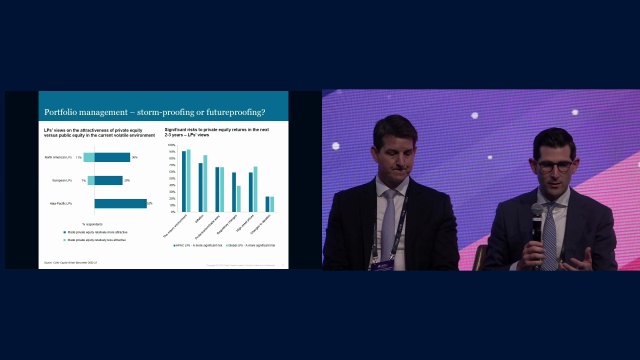 play_arrow
play_arrow




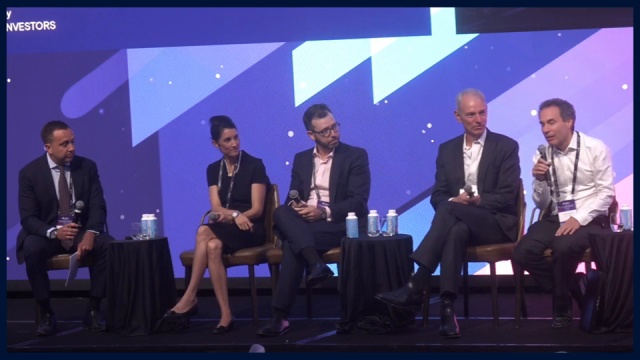 play_arrow
play_arrow





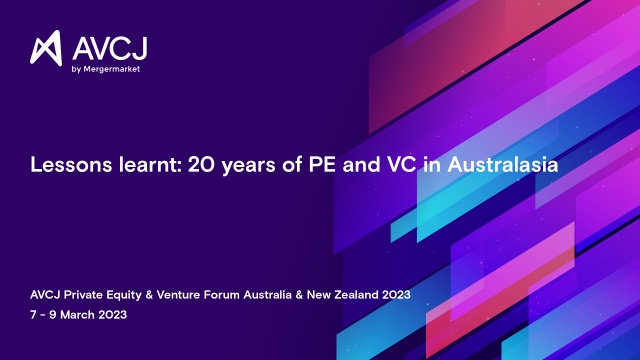 play_arrow
play_arrow

 play_arrow
play_arrow



 play_arrow
play_arrow





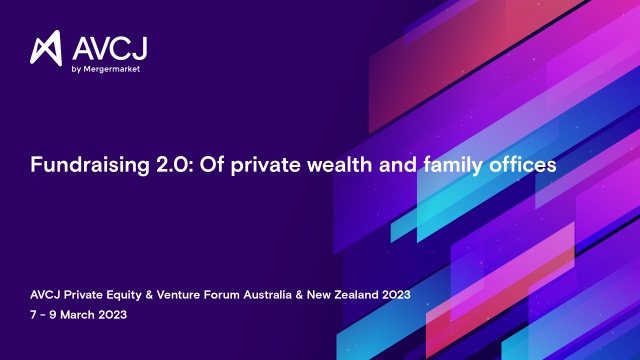 play_arrow
play_arrow







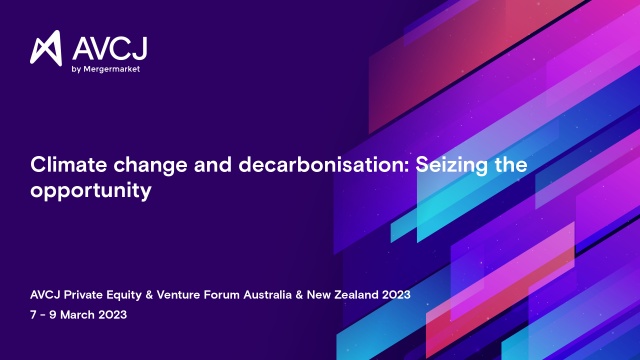 play_arrow
play_arrow




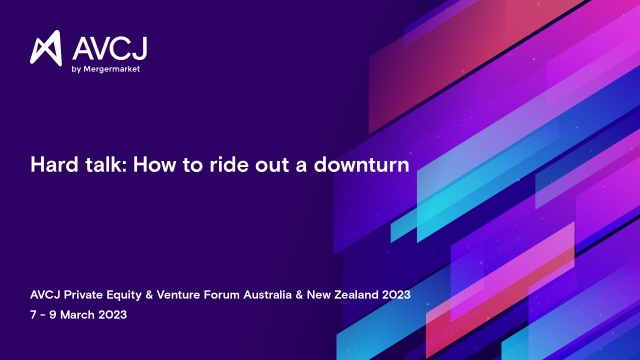 play_arrow
play_arrow






 play_arrow
play_arrow





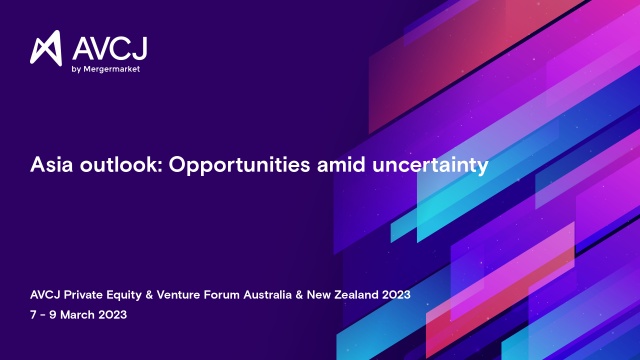 play_arrow
play_arrow





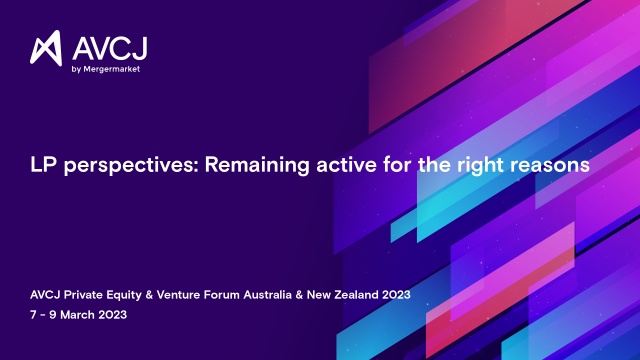 play_arrow
play_arrow